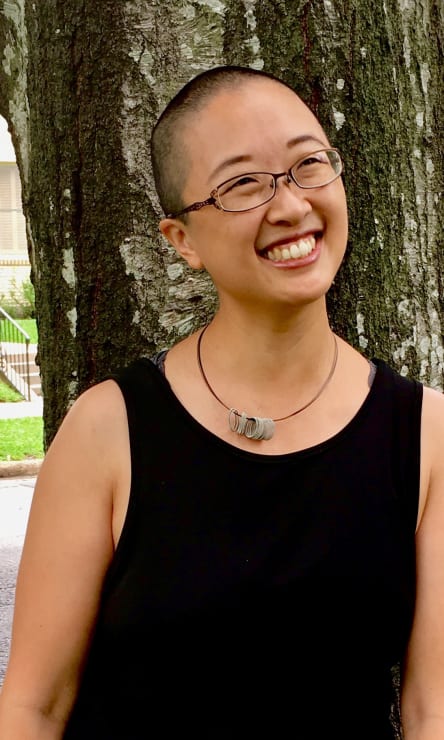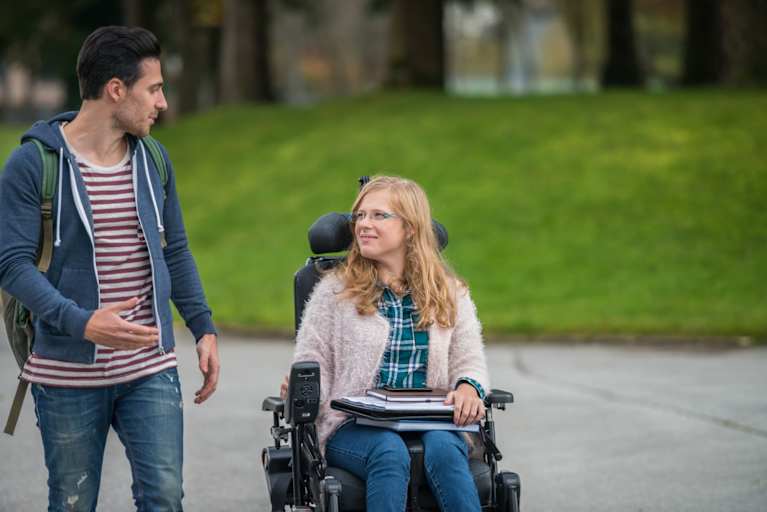How to Navigate College With ADHD
Students with attention deficit hyperactivity disorder (ADHD) experience unique challenges. A recent study from researchers at Lehigh University, The University of North Carolina at Greensboro, University of Rhode Island, and University of Nebraska-Lincoln showed that college students with ADHD face a higher than average risk of dropping out of college.
Whether or not college students with ADHD excel academically, they often need extra support to manage college, which can be overwhelming. College students experience new social environments, as well as new and different distractions in less structured settings than they may be used to.
If you have ADHD, the following strategies may help you decrease your struggles or even avoid them altogether.
What Is ADHD?
Despite its name, ADHD is not actually a deficit of attention. ADHD is a neurological difference or neurodivergence.
Since much of society was created for those considered “neurotypical,” ADHD is often considered a disability. ADHD can be experienced as having an abundance of attention, but with some trouble regulating it. At times, the ADHD mind can be hyper focused on one particular topic. At other times, the ADHD brain may shift focus rapidly, seeming to attend to many things at once.
College students with ADHD may struggle with executive function and sensory challenges. Since executive function includes the cognitive processes of prioritization and organization, learners with ADHD often struggle with time management and self-motivation.
Students with ADHD may also struggle with inhibition and emotional sensitivities. Due to stigma and social norms, many college students who have ADHD struggle socially as well.
There is no single presentation, no single look of ADHD. There are, however, three different presentations, which can change over time: primarily inattentive, primarily hyperactive/impulsive, and combined. According to the ADHD magazine ADDitude, approximately 9.4% of children in the United States have been diagnosed with ADHD. About 2.8% of adults have been diagnosed.
For children, diagnosis requires six of the nine symptoms listed in the Diagnostic and Statistical Manual of Mental Disorders. These symptoms must significantly interfere with a person’s life, must have been present since before age 12, and must have persisted for at least six months. These symptoms cannot be explained by other conditions.
Adult examinations consist of a diagnostic interview. A doctor might also interview close friends and family members to learn about the patient’s childhood, as well as examine the patient to rule out psychological and medical conditions.
How ADHD Shapes College Student Experiences
- Executive Function Challenges: Executive function refers to the brain’s self-management system and is responsible for a person’s ability to initiate tasks, manage time, plan and prioritize, and organize their lives. Poor executive functioning can sometimes account for why college students with ADHD may be late to class, late to submit homework assignments, or miss classes and deadlines altogether.
- Sensory Sensitivities: Sensory processing differences, a common feature of the ADHD experience, can lead to sensory overwhelm and overload. On a difficult sensory day, a college student with ADHD may find a lecture difficult to follow due to a headache caused by fluorescent lights or find themselves distracted by temperature, scents, and other stimuli.
- Rejection Sensitive Dysphoria: Rejection sensitive dysphoria (RSD) is a second form of sensitivity that people managing ADHD sometimes experience. In addition to sensory sensitivities, some people with ADHD can experience deep pain from social rejection and criticism. ADHD learners might take feedback more harshly than most students. If you suspect you’re experiencing RSD, consider taking a self-test from ADDitude.
- Social Challenges: Due to their differences, people managing ADHD often experience bullying and isolation. College students with ADHD may also struggle with maintaining friendships that rely on their needing to remember and be on time for scheduled occasions. Social challenges may lead to communication breakdowns. And RSD may cause college students with ADHD to blame themselves for these communication breakdowns.
- Creative Advantage: The wandering of the ADHD mind can be a benefit. Once a college student with ADHD learns how their mind and body work, they may be better able to accept that their “impulsive” and “distracted” minds can enable creative, imaginative, and intuitive thinking. They may also experience intense curiosity that allows them to gain expertise in multiple fields.
Tips and Strategies to Manage ADHD
Connect With On-Campus Resources
Visit your college’s disability or accessibility office. This office works with faculty and staff to accommodate students managing disabilities. Accommodations can include extra time on homework and tests as well as notetakers and realtime captioning services. When available, on-campus therapists and psychiatrists can help you manage any anxiety, depression, or trauma that may have arisen from having had to manage your challenges.
Create Systems and Routines
Try managing time by wearing a watch programmed with alarms and timers, or set these alarms on your phone. Place wall clocks in your home. A wall calendar or a bullet journal could help you manage assignment deadlines. If you’re digitally minded, you might use an app to stay focused.
Find Community
It may be easiest to create a social life with people who share your interests. Orientation and the first week of classes can be an excellent time to meet people. You can find clubs and activities by reading bulletin boards or by searching your school’s website. You may also find it worthwhile to connect with various communities of neurodivergent people online or in person.
Experiment
Try attending an in-person class and an online one. Try tutoring. Visit your professor during office hours. Try studying in a library. You may find yourself more focused if you take notes, doodle, or use a sensory device. Remember to also ask others with ADHD for their advice, but don’t be too disappointed if a tip that worked for someone else didn’t help you.
Resources for Students With ADHD
ADDitude
ADDitude offers a wealth of resources, including a newsletter, a magazine, and a blog. The website includes information on many topics, including medications, tests, diagnosis information, autism, and sensory processing.
How To ADHD
How to ADHD is a deeply researched and entertaining YouTube channel, website, and community created by Jessica McCabe, who refers to the project as her “ADHD toolbox” where she shares strategies about living with ADHD.
ADHD Comics
Dani Donovan, an artist managing ADHD, shares empowering, educational comics on her website. These include illustrations on ADHD stigma and understanding and accepting ADHD challenges.
LadyHD
Subtitled “a podcast for distractible women,” LadyHD “interviews ladies with ADHD about being a lady with ADHD.” Many listeners find the podcast fun, instructive, and relatable.
ADHD Coaches
An ADHD coach will help you achieve your goals by creating long-term plans and by teaching you strategies to manage your challenges.
Editor’s Note: This article contains general information and is not intended to be a substitute for professional advice. Please consult a professional advisor before making decisions about health-related issues.
Reviewed by:

Angelique Geehan works to support and repair the connections people have with themselves and their families, communities, and cultural practices. A queer, Asian, gender binary-nonconforming parent, Geehan founded Interchange, a consulting group that offers anti-oppression support. She organizes as part of several groups, including the National Perinatal Association’s Health Equity Workgroup, the Health and Healing Justice Committee of the National Queer and Trans Asian and Pacific Islander Alliance, QTPOC+ Family Circle, and Batalá Houston.
Angelique Geehan is a paid member of the Red Ventures Education freelance review network.
Feature Image: deimagine / E+ / Getty Images


